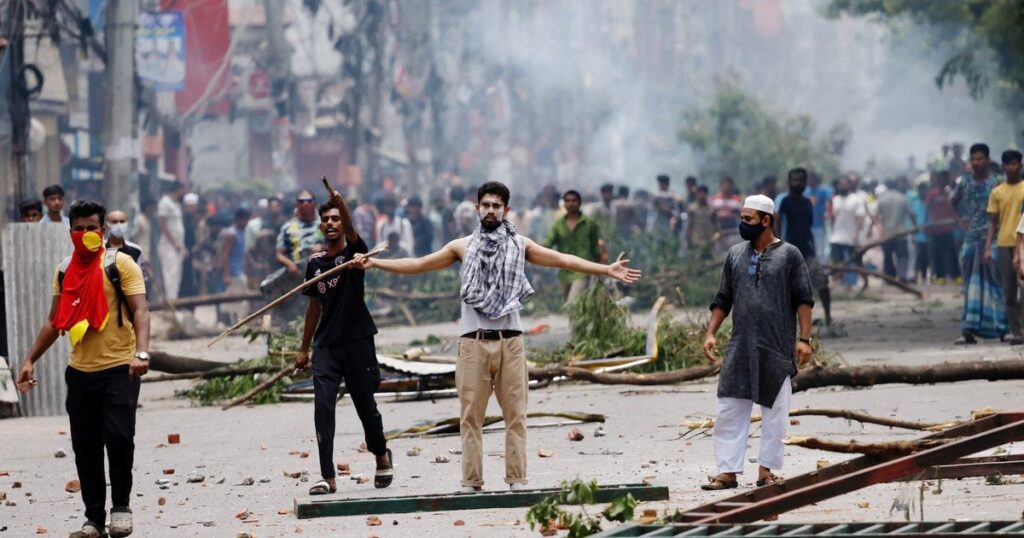In recent weeks, students (and non-student allies) at some of the leading universities in Dhaka have taken to the streets in large-scale protests. Despite the decline of its democracy in recent years, to the point that Sheikh Hasina, recently “elected” to a fourth term and ruling what is now, at best, a competitive autocracy, Bangladesh retains a vibrant protest culture, and students have historically played a central role in leading protests about a range of issues.
In Sheikh Hasina’s increasingly repressive and policed Bangladesh, however, protest––or any dissent against the government and Islamist allies––comes with a significant cost. Few Bangladeshis are spared from the crackdown: liberal writers are assassinated in their homes, thugs attack protestors inside Dhaka hospitals, and police take brutal measures against student protestors. This past weekend, local media in Dhaka reported that over 100 people were killed in the protests, and the U.S. Embassy in Dhaka advised against visiting Bangladesh due to the turbulence. The death toll could undoubtedly be higher than the reported figure. It is challenging to obtain correct estimates in Bangladesh because the government has a history of concealing accurate figures, and protests are often met with communication blackouts.
More on:
Police, meanwhile, imposed a curfew by the weekend in Dhaka, with a shoot-to-kill order for people out at times when the curfew was in force. Hasina’s government also briefly blacked out local communications and shut down social media access to isolate the protestors. With the curfew this past weekend and most stores and restaurants closed, the capital was far quieter.
However, curfews and clampdowns cannot ultimately contain the sentiments that led to the protests. The student protests were a reaction to young people’s anger that about 30 percent of government jobs are held in a quota system for people related to veterans of Bangladesh’s 1971 War of Independence. Bangladesh’s High Court recently reinstated these quotas, which had been banned for several years. Many young people who have worked extremely hard to get into the best schools in Dhaka and aspire to a comfortable and high-status government job are angered by the move. In spite of growing multinational interest in Bangladesh, there are not enough decent, white-collar jobs for university graduates, a problem shared by other states in the region, like Thailand. Student leaders have met with government representatives and demanded changes to the quota system to make it a merit-based system, which would at least open some more jobs to recent university graduates. Although government representatives claim they are open to change, the quota system delivers for Hasina and her Awami League politically, so she demonized the protestors this time around.
The protests are symbolic of broader problems in Bangladesh’s political system and economy. Now essentially an autocracy, rated only “partly free” by Freedom House in its annual report, the government has lost all public trust. It terrorizes opposition figures, forcing them to go on the run, and undermines elections by refusing to use a caretaker government in the run-up to this year’s vote. Even as companies look to Bangladesh as an alternative to China, young Bangladeshis often despair at the lack of decent jobs, something Hasina’s government does not pay enough attention to as it focuses on keeping its power. Indeed, just last year, Bangladesh needed a $4.7 billion loan from the IMF to stabilize its economy. Sheikh Hasina, who has been in power since 2009 and is starting her fourth consecutive term, leads a brittle government that relies on force. She faces many challenges beyond these protests.
More on:

